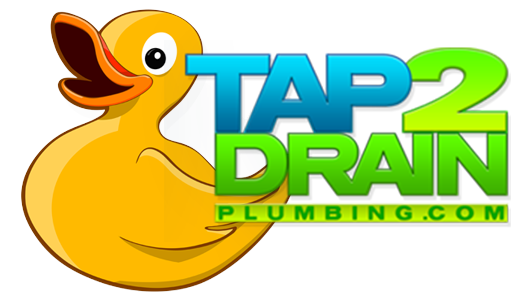The bathroom is one of the most crucial and frequently used areas in any home. However, it’s also one of the places where plumbing issues are most likely to occur. From leaky faucets to clogged drains, bathroom plumbing problems can be frustrating and disruptive. To keep your bathroom plumbing in top-notch condition and prevent costly repairs, regular maintenance is essential. In this blog post, we will provide expert tips for maintaining your bathroom plumbing to ensure its efficiency and longevity.
Keep Drains Clear
Clogged drains are a common issue in bathrooms, caused by hair, soap scum, and other debris accumulating over time. To prevent clogs, consider using a drain strainer or stopper to catch hair and larger particles before they go down the drain. Be sure to clean the strainer regularly.
Once a week, pour boiling water down the drain to help dissolve and flush away any built-up soap and grime. For stubborn clogs, try using a plunger or a mixture of baking soda and vinegar to break up the blockage naturally.
Address Leaky Faucets Promptly
A leaky faucet not only wastes water but can also lead to higher water bills and potential damage to your bathroom fixtures and cabinets. If you notice a faucet dripping, don’t ignore it. Promptly address the issue to avoid wasting water and prevent further damage.
Most faucet leaks can be fixed by replacing a worn-out washer or cartridge. If you’re not comfortable with DIY plumbing repairs, hire a professional plumber to take care of it for you.
Check Toilet Components Regularly
Toilets are a primary source of water usage in any home, and a malfunctioning toilet can waste a significant amount of water and money. Regularly inspect the toilet components to ensure everything is working correctly.
Check the flapper and flush valve for any signs of wear or damage. These parts are essential for the proper functioning of your toilet. If you notice any issues, such as continuous running or weak flushes, it may be time to replace these components.
Additionally, listen for any unusual noises when the toilet is not in use, as this may indicate a silent leak. To check for a silent leak, place a few drops of food coloring into the toilet tank. If the color appears in the bowl without flushing, there is a leak that needs to be addressed.
Mind Your Toilet Paper Usage
Using excessive amounts of toilet paper can lead to clogs, especially in older plumbing systems. Encourage household members and guests to use a moderate amount of toilet paper per flush to reduce the risk of clogging.
Avoid flushing items other than toilet paper down the toilet, such as wipes, paper towels, or feminine hygiene products. These items do not break down as easily as toilet paper and can lead to clogs and sewer line issues.
Prevent Excessive Moisture
Bathrooms are naturally humid environments, and excessive moisture can lead to mold and mildew growth, which can damage bathroom fixtures and compromise your indoor air quality. To prevent excessive moisture:
Use ventilation: Ensure your bathroom has proper ventilation, such as an exhaust fan, to remove moisture from the air during and after showers.
Wipe down surfaces: After bathing or showering, wipe down the shower walls, tub, and other surfaces to remove excess water.
Fix leaks promptly: Address any leaks in pipes, faucets, or fixtures promptly to prevent water from accumulating and causing damage.
Be Careful with Chemical Cleaners
Chemical drain cleaners may seem like a quick fix for clogs, but they can be harmful to your plumbing over time. These harsh chemicals can erode pipes and cause long-term damage to your plumbing system.
Instead of relying on chemical cleaners, try using natural alternatives. As mentioned earlier, a mixture of baking soda and vinegar can be effective in breaking down minor clogs. Additionally, regular maintenance and clearing of debris from drains can help prevent the need for chemical cleaners altogether.
Insulate Pipes in Cold Climates
If you live in a cold climate, it’s essential to insulate exposed pipes to prevent freezing and potential bursts. Frozen pipes can lead to significant water damage and costly repairs. Use pipe insulation or heating tape to protect vulnerable pipes during colder months.
Schedule Professional Inspections
While regular maintenance can go a long way in preventing plumbing issues, it’s also essential to have professional inspections performed periodically. A licensed plumber can identify potential problems and address them before they escalate into more significant issues.
Professional inspections should include checking for leaks, testing water pressure, and examining the condition of pipes and fixtures. Regular inspections can save you money in the long run by preventing major plumbing problems and extending the life of your bathroom plumbing.
Reach Out to a Qualified Plumber at Tap 2 Drain Plumbing in Fraser Valley
By following these expert tips for maintaining your bathroom plumbing, you can keep your bathroom in excellent working condition and avoid costly plumbing repairs. Remember to keep drains clear, address leaky faucets promptly, inspect toilet components regularly, and be mindful of your toilet paper usage. Additionally, prevent excessive moisture, avoid harsh chemical cleaners, and insulate pipes in cold climates.
For more complex plumbing issues or professional inspections, don’t hesitate to reach out to a qualified plumber at Tap 2 Drain Plumbing located in Fraser Valley. With regular maintenance and care, you can ensure the efficiency and longevity of your bathroom plumbing, providing comfort and peace of mind for you and your family.

